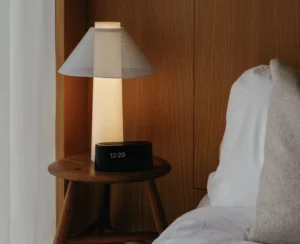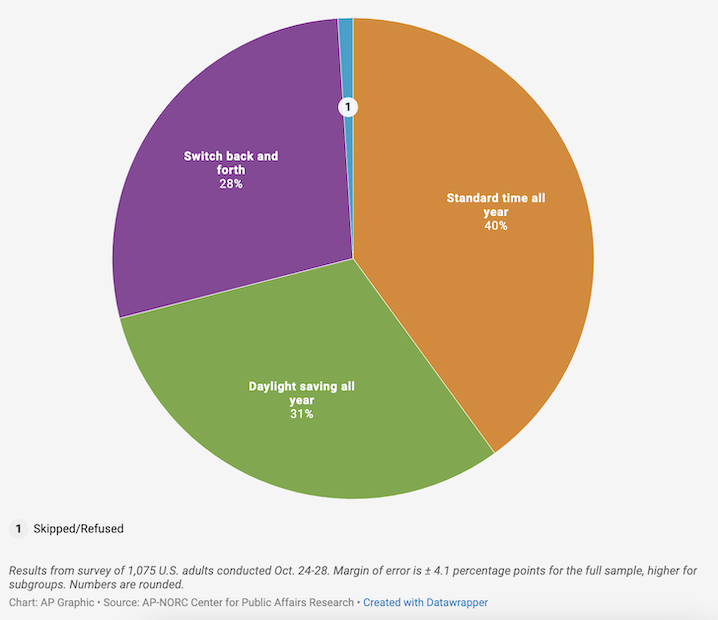
we're bracing ourselves for Daylight Savings on Sunday, March 12 -- meaning we'll lose an hour of health-inducing sleep and disrupt the sleep hygiene so many of us manage meticulously these days. But could it be the last time we have to perform the tiring chore? It's possible that the twice yearly adjustment is coming to an end.
Last year, The U.S. Senate passed the Sunshine Protection Act that would make daylight saving time permanent starting in late 2023. The bill's sponsors are waiting to receive final input from stakeholders like the airline and broadcasting industries before the change could become permanent come November. Our fingers are crossed.
Should Daylight Savings Be Cancelled?
According to a study by the Sleep Foundation, daylight savings can lead to increased heart problems, insomnia, mood disorders and even motor vehicle accidents. Many of us experience the time change as sleep disruption, darker mornings, and an overall kick to our emotional health.
Circadian rhythms are naturally occurring 24-hour cycles that regulate our body’s internal clock. Highly sensitive to light, these rhythms dictate how our body responds to the environment and can impact our productivity, sleep schedules and more.
According to Reuters, the House Energy and Commerce committee held a hearing in which Vanderbilt Sleep Division director, Beth Malow compared daylight savings to "living in the wrong time zone for almost eight months out of the year."
According to a 2019 AP-NORC Center poll, 70% of Americans agree that swapping times twice a year should come to an end.

For this week, sleep disruption is still on and the Sleep Foundation recommends these simple tips to help you cope:
Practice Good Sleep Hygiene: Refrain from consuming alcohol before bed. Reduce heavy dinners and snacks before bedtime.
Establish a Consistent Sleep Routine: Make sure you get at least seven hours of sleep each night before and after transitioning to or from DST.
Gradually Alter Your Bedtime: Two to three days before the change.
Spend Time Outdoors: Since natural light is a driving force behind our circadian rhythms, exposure to sunlight can alleviate feelings of tiredness during the day that often accompany time changes.
Nap in Moderation: People who experience sleep debt as a result of DST may find some relief by taking short naps during the day. These naps should never exceed 20 minutes in length; otherwise, you may wake up feeling groggy.
Don’t Consume Caffeine Too Close to Bedtime: Studies have found caffeine consumed within six hours of bedtime.
How do you feel about the possible change? Perhaps this will be one more cultural experience we can share with our future grandchildren as funny historical anecdote, instead of actual school day sleep disruption and dark walks to school.
The post Should Daylight Savings Be Cancelled? Here’s What It Means For Your Health appeared first on The Chalkboard.
from The Chalkboard https://ift.tt/ihQBYDn
via IFTTT
No comments:
Post a Comment